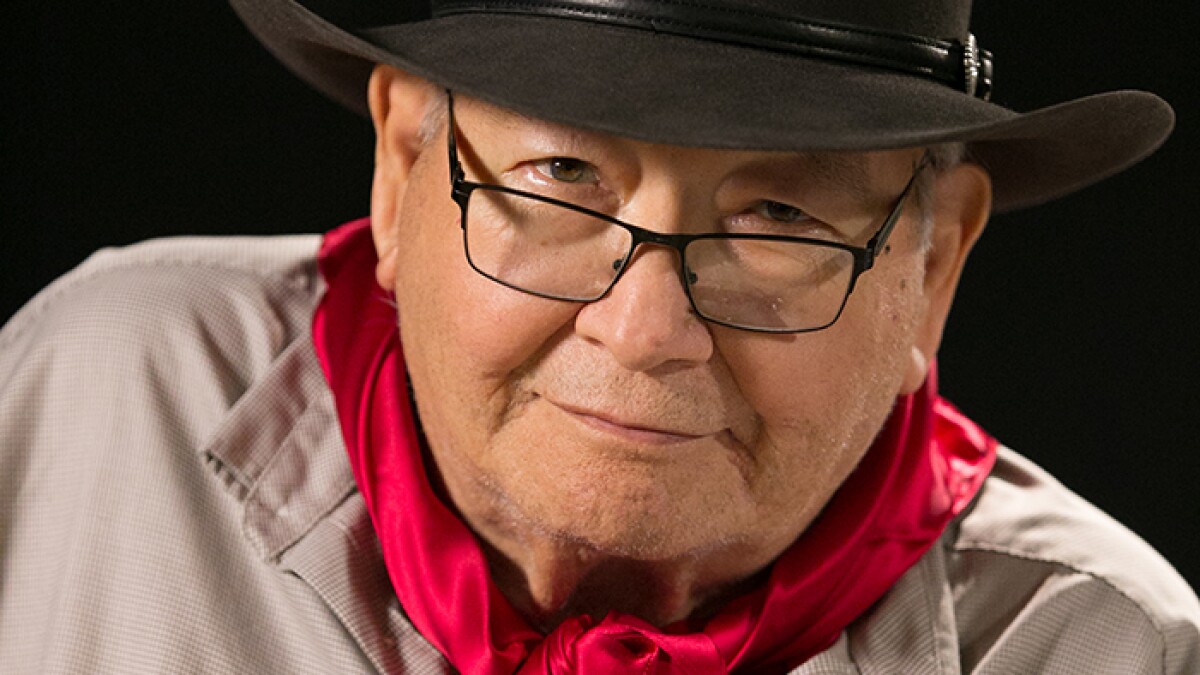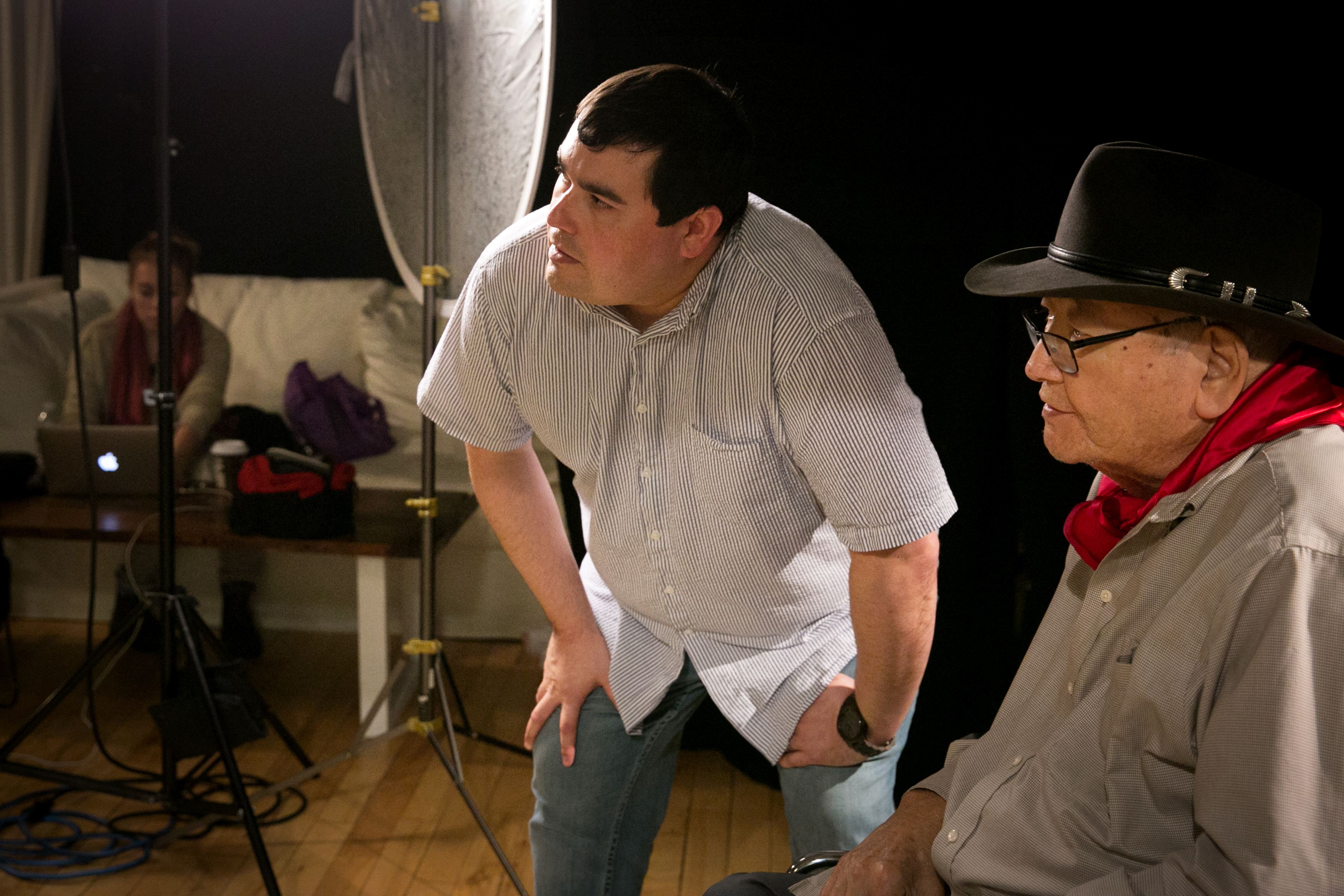
- Details
- By Levi Rickert
N. Scott Momaday (Kiowa/Cherokee), one of the most prolific contemporary Native American writers, has passed away at his home in Santa Fe, New Mexico. Momaday, who was awarded a Pulitzer Prize for Fiction in 1969 for his debut novel “House Made of Dawn,” was a storyteller, poet, and educator. He was 89.
Momaday is credited with a resurgence of Native American literature and earned his place as the founding member of the “Native American Renaissance.” After receiving the Pulitzer Prize, he wrote “The Way to Rainy Mountain” in 1976.
Throughout his illustrious career, he became known for Indigenous oral tradition, which he taught during his 35 years as an educator. Momaday earned a Ph.D. in English literature from Stanford University and went on to teach at several universities, including the University of California-Santa Barbara and the University of California-Berkeley. He retired as Regents Professor at the University of Arizona.
In 2007, Momaday was presented a National Medal of Arts award by President George W. Bush. At the time of the award presentation, the White House said Momaday was given the award for “for his writings and his work that celebrate and preserve Native American art and oral tradition.”
In 2019, Momaday was featured on a PBS “American Masters” documentary, “Words from a Bear,” in which he discussed his belief he was a reincarnation of a bear connected to the Native American origin story around Devils Tower in Wyoming. The film captured the essence of Momaday’s writing with a strong emphasis on Native American oral history. "Words From a Bear" was produced and directed by Jeffrey Palmer (Kiowa).

Palmer, who teaches film at Cornell University, told Naive News Online on Monday that he worked with Momaday for three and half years to complete the documentary, which allowed him to spend a lot of time with the author.
"He made Native American literature and storytelling palatable to the rest of the world. He opened countless doors of Native American storytellers," Palmer said. "He was a changemaker and an icon. For the Kiowa people it was profound to see our stories told to the rest of the world. I put Momaday up there with Whitman and Faulkner. He was a great American writer, not only a Native American writer."
Born on February 27, 1934, in Lawton, Oklahoma, at the Kiowa and Comanche Indian Hospital, Momaday’s father was full-blooded Kiowa, and his mother was Cherokee, English, Irish, and French. He spent several years growing up at the Jemez Pueblo in New Mexico, which influenced much of his writing.
In addition to the Pulitzer Prize, Momaday was the recipient of numerous awards and honors, including the Academy of American Poets Prize; the National Medal of Arts; the Ken Burns American Heritage Prize; the Dayton Literary Peace Prize Foundation’s Richard C. Holbrooke Distinguished Achievement Award; and the 2021 Frost Medal for distinguished lifetime achievement in poetry.
More Stories Like This
Native News Weekly (August 25, 2024): D.C. BriefsUS Presidents in Their Own Words Concerning American Indians
Indigenous Actor Elaine Miles Reports Detention by Alleged ICE Agents
Happy Thanksgiving from Native News Online
Coming Up on Native Bidaské: Behind the Animation: Joey Clift Talks “Pow” and Native Storytelling
Help us tell the stories that could save Native languages and food traditions
At a critical moment for Indian Country, Native News Online is embarking on our most ambitious reporting project yet: "Cultivating Culture," a three-year investigation into two forces shaping Native community survival—food sovereignty and language revitalization.
The devastating impact of COVID-19 accelerated the loss of Native elders and with them, irreplaceable cultural knowledge. Yet across tribal communities, innovative leaders are fighting back, reclaiming traditional food systems and breathing new life into Native languages. These aren't just cultural preservation efforts—they're powerful pathways to community health, healing, and resilience.
Our dedicated reporting team will spend three years documenting these stories through on-the-ground reporting in 18 tribal communities, producing over 200 in-depth stories, 18 podcast episodes, and multimedia content that amplifies Indigenous voices. We'll show policymakers, funders, and allies how cultural restoration directly impacts physical and mental wellness while celebrating successful models of sovereignty and self-determination.
This isn't corporate media parachuting into Indian Country for a quick story. This is sustained, relationship-based journalism by Native reporters who understand these communities. It's "Warrior Journalism"—fearless reporting that serves the 5.5 million readers who depend on us for news that mainstream media often ignores.
We need your help right now. While we've secured partial funding, we're still $450,000 short of our three-year budget. Our immediate goal is $25,000 this month to keep this critical work moving forward—funding reporter salaries, travel to remote communities, photography, and the deep reporting these stories deserve.
Every dollar directly supports Indigenous journalists telling Indigenous stories. Whether it's $5 or $50, your contribution ensures these vital narratives of resilience, innovation, and hope don't disappear into silence.
 The stakes couldn't be higher. Native languages are being lost at an alarming rate. Food insecurity plagues many tribal communities. But solutions are emerging, and these stories need to be told.
The stakes couldn't be higher. Native languages are being lost at an alarming rate. Food insecurity plagues many tribal communities. But solutions are emerging, and these stories need to be told.
Support independent Native journalism. Fund the stories that matter.
Levi Rickert (Potawatomi), Editor & Publisher

